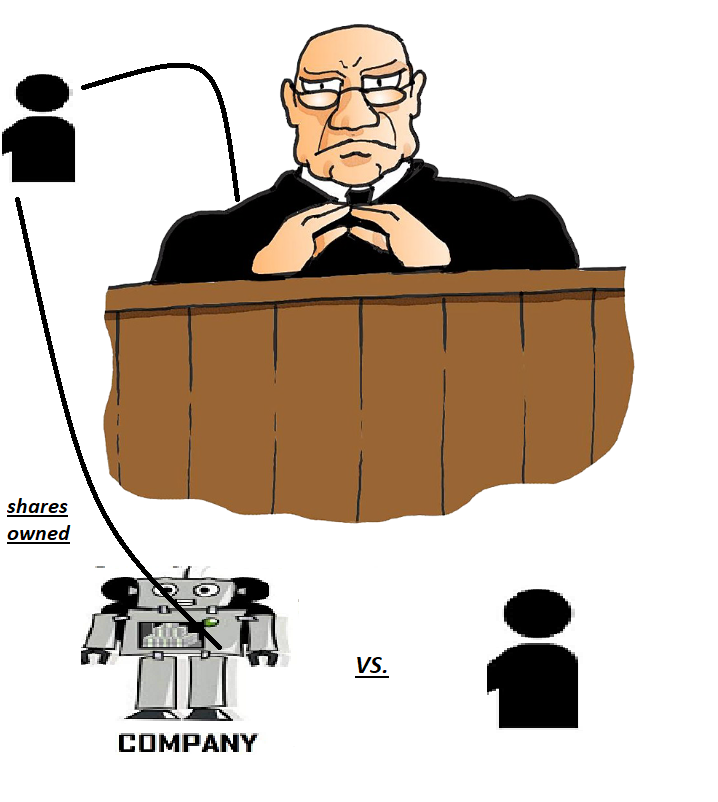Dimes v The Proprietors of the Grand Junction Canal, 1852 (1852) 3 HL Cas 759 (5962)
Citation:Dimes v The Proprietors of the Grand Junction Canal, 1852 (1852) 3 HL Cas 759 (5962)
Rule of thumb:What happens if a Judge hears a case involving a company he has shares/ a financial interest in? If a Judge has any kind of financial interest related to the case then they cannot be a judge in it.
Background facts:
The basic facts of this case were that there was a compulsory purchase of land which a bridge was to be constructed on. The parties could not agree upon a price for the land and the Court was required to set what a fair price for the land was. The Judge in the case who set the price for the land was found to have shares substantial shares in the company which was contracted to build the bridge before the Judge heard the case involving it – meaning that the Judge potentially stood to receive bigger dividends if the land was bought at a cheaper.
Judgment:
It was held that in this scenario then the Judge should not have heard the case and the decision was quashed – it was held by the Court that even although the value set by the Judge did seem to be in line with what the consensus of opinion amongst surveyors was, the decision could still not be upheld and had to be redone in another case. It was important that justice was seen to be done and this would not occur in the case,
Ratio-decidendi:
‘No one can suppose that Lord Cottenham could be, in the remotest degree, influenced by the interest he had in this concern; but, my Lords, it is of the last importance that the maxim that no man is to be a judge in his own cause should be held sacred. And that is not to be confined to a cause in which he is a party, but applies to a cause in which he has an interest. Since I have had the honour to be Chief Justice of the Court of Queen’s Bench, we have again and again set aside proceedings in inferior tribunals because an individual, who had an interest in a cause, took a part in the decision. ..This will be a lesson to all inferior tribunals to take care not only that in their decrees they are not influenced by their personal interest, but to avoid the appearance of labouring under such an influence’, Lord Campbell

Warning: This is not professional legal advice. This is not professional legal education advice. Please obtain professional guidance before embarking on any legal course of action. This is just an interpretation of a Judgment by persons of legal insight & varying levels of legal specialism, experience & expertise. Please read the Judgment yourself and form your own interpretation of it with professional assistance.

